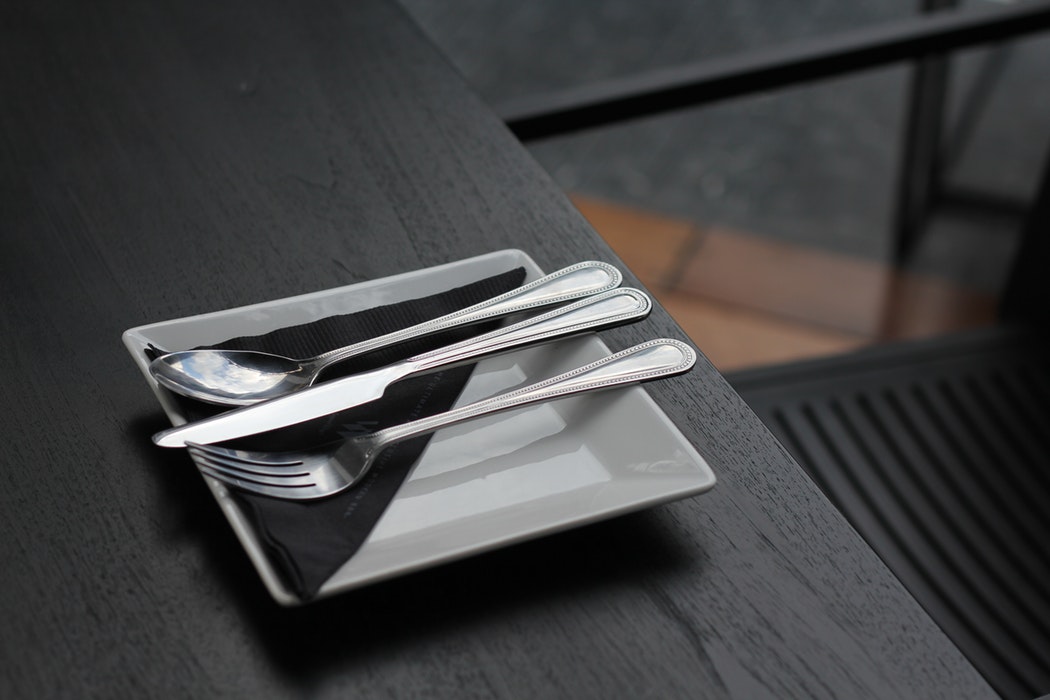
Enjoying communion with your local church is truly a blessed time. It is not only a sober and convicting remembrance of our Lord’s death, burial, and resurrection, but it is also a joyous celebration concerning our salvation and His return (1 Cor. 11:26). This means of grace is truly an essential ordinance to our worship and to our sanctification.
But as the preacher recites 1 Cor. 11:28-29 concerning self-examination and discerning the Lord’s body, I usually hear something that advises us to let the elements “pass by” if we are in blatant sin. Or a warning on drinking the body and blood of Christ “unworthily” because of some besetting sin(s).
But why? Where does Scripture command us to refuse participation in communion when we are aware of besetting sin(s) in our life? Why do some teach that we should let the elements “pass by” if this is the case? Is this a tradition that we have accepted without proper study? If we are to benefit from this spiritual command from our LORD we need to seriously consider four things before ever deciding to take a “pass” on communion.
Communion: An Actual Meal
1. Communion was an actual meal or feast. I know we are all used to crackers or wafers being served to us, but that is not the communion of Scripture. In Acts 2:42 and 46, the “breaking of bread” is not just bread being served at meals, but also implies a fellowship and community meal. In 1 Cor. 11:17-34, the “coming together” is actual meals together (1 Cor. 11:21).
This is significant because communion meals were an integral part of the life of the local church, and they supported the poor and the hungry. But there were some who were being inconsiderate toward their brethren, only caring about their fleshly appetite. This is a critical point when considering under what context we are to “examine ourselves” and “discern” the body of the LORD.
Not Sinful, But Not Accurate
Now, this is not to say that serving crackers/wafers and juice/wine as it is practiced today is sinful. Let’s make this clear. But it does not accurately mirror a biblical “coming together” for communion, nor does it emulate the practice of sharing and eating an actual meal for the purpose of prolonged fellowship, celebration of Christ, and community in the LORD.
Also, this isn’t to say that most local churches aren’t thinking about the above. However, a meal/feast is fundamentally different than just choreographed consumption of crackers and juice. And although I am completely aware of the cultural distinctions, having communion meals (or love-feasts; Jude 1:12) to commemorate the sacrifice of Christ, in many ways, transcends culture, doesn’t it?
So while we may pause for a moment to examine ourselves, the question we first need to ask is if our communion services fulfill the biblical pattern? Because if it doesn’t, there is no room to let anything “pass by” in the first place.
Refusal to Participate is Unbiblical
2. Nowhere in Scripture are we taught to refuse communion simply because we are aware of some besetting sin(s). In 1 Cor. 11:17-34, Paul is correcting those that are coming together for selfish reasons. Some were gorging themselves, leaving their brethren hungry, and others were getting drunk (v21). But even then, does Paul teach anywhere that these individuals are to let the bread and wine “pass by,” or to refuse participation because of their sin? No.
What Paul does teach is that they are bringing judgment upon themselves because of their behavior (v30), and provides counsel to prevent this behavior from happening again (v33-34). Notice, Paul anticipates that they will still come together for another communion meal. The context reveals the apostle admonishing those Corinthians who are not being mindful of other saints when eating at these communion feasts. And that they should eat beforehand so that when they do come together, they won’t bring judgment upon themselves.
Paul is not saying, “Maybe you should skip communion, examine yourself, then come back when you’ve figured things out.” He is teaching that if you come together without considering one another in the meal, then you will bring the Lord’s discipline upon yourself.
The solution — be considerate and wait for one another (1 Cor. 11:33). Not — don’t participate until you deal with your besetting sins.
What Paul is Really Teaching
Paul’s teaching concerning how they should participate in communion is evident when you follow the language. In order to prevent us from partaking of the table of blessing in an unworthy manner (v27), he commands that we (re)examine (δοκιμαζέτω – imperative) ourselves concerning the reason why we are coming together (v28), and it is in this way, fashion, or manner of thinking (οὕτως) that we are to participate in communion, which should produce the intended effect of rightly discerning the Lord’s body.
In other words, we are to examine ourselves while we participate in the Lord’s supper, not pause to consider whether we are too sinful this week to do so. It is good that we feel unworthy because of our sin, but the self-examination Paul warns us about has more to do with looking to Christ than ourselves.
More About Christ Than Ourselves
3. Communion is more about Christ than ourselves. This doesn’t mean that confronting our sin is absent when participating in communion. But since Christ is our focus in these love feasts, it is imperative that we soberly and joyfully testify and celebrate His body broken for us, as well as His blood spilled in our place. And it is through that knowledge that the Holy Spirit will drive you both to repentance and joy for what He has done as a penal substitute.
When you focus more on Christ (since it is His supper), this should inevitably bring you to a place where you will be humbled by the goodness of God, and served spiritually by His means of grace. And instead of refusing to participate because of sinful self-awareness, we should praise God for another moment of grace where we get to focus on His redeeming work and find a place of rejoicing and repentance because He is good.
But perhaps you may be thinking: What about the verses that talk about judging ourselves so that we would not be judged (v31)? I mean, Paul is saying that many were weak, sick, and dying because they were participating in an unworthy manner. Wouldn’t it be best not to participate than to bring judgment upon our own heads?
Once again, no. Nowhere does Paul imply that we are to avoid communion in any way or fashion. He is simply warning and correcting those who are not considering one another when they come together. In other words, Paul is correcting them, not restricting them. He is calling them to repentance, not refusal. Eating and drinking in an unworthy manner, in context, has more to do with selfishness and how we treat one another as Saints when coming together than it does with examining whether we should partake in the first place.
Now to the final point.
Examine Ourselves While We Eat, Not Before
4. The idea of self-examination found in verse 28 is not a deep, soul-searching, self-examination. We don’t go on a crusade against all the sins we’ve committed in the past week or month, and in a tiny moment, expect to repent of them all before we can actively participate in communion. Nor are we to sit there and try to judge whether or not we are worthy. This is not what Paul had in mind. Self-examination (δοκιμαζέτω) in this verse has much to do with rightly understanding the reason we come together in relation to the Lord’s body (v29).
This essentially has a two-fold application:
- We are to revere and rejoice in the LORD concerning what He has done while anticipating His return.
- We are to exercise considerate fellowship with His body, the Church, when we come together for communion meals.
That’s why Paul commands them to examine themselves while partaking in the meals (v28). Paul does not command them to examine themselves, and if they find themselves falling short, take a pass.
A Short Testimony
When I was a new believer, there were several Sundays when I was extremely grieved over my sin. Because of this, at times I exercised what I thought was my right to pass on communion until I repented of my sin. Thankfully, a pastor pulled me aside and helped me understand a vital truth I didn’t quite grasp then, but have since nurtured in my life now.
The truth is that communion is a means of grace that also sanctifies us (1 Cor. 10:16). It is a spiritual event that refocuses us back on Christ and nurtures our souls. I often experience more joy, brokenness, and repentance because of communion, despite my sinfulness, than waiting until I “feel” worthy. Communion promotes time for some self-reflection, sure. But it primarily serves as a gospel reminder of what the LORD has done in my place.
It is a time of rejoicing and humbling that Jesus would save a sinful man like myself, meanwhile enjoying the privilege to share fellowship with Him and His body of believers. So while I may feel guilt, at times, for my sin, I still participate in communion regardless of whatever sin may be plaguing me at the time, considering the riches of His grace lavished upon me (Eph. 1:7-8). This leads me to a place of greater thankfulness, praise, and yes, even repentance all at once! And oftentimes, it is participating that makes room for repentance and a real heart change!
Conclusion
Scripture demonstrates that we are not to pass up, refuse, or neglect communion even when we are conscious of besetting sins. We are to relish every means of grace God has given us in order to sanctify us and bring us to enjoy more fellowship with Him and His people.
Whether it is pornography, anger, envy, unforgiveness, and the like, communion is the perfect time to repent of these sins by drawing our attention back to Christ through participation in these meals together, with your local church, and remembering what He accomplished for His Bride.
-Until we go home






Read an earlier statement in 1 Corinhins that we are not even to eat a meal with people guilty of serious sin
Hello Geoff! Thank you for your point.
When deciding not to eat with another professing believer, we must understand that, at that point, the person has repeatedly demonstrated unrepentant sin and obstinancy in their life, and that church discipline has already taken course by the congregation (Matt. 18:17).
This is markedly different than a professing believer participating in the LORD’s Supper. They may fight and succumb to various sins (even serious ones), but refusal is not an option.
If they are called to repentance about a particular sin, and are stubborn and obstinate after so many pleas, warnings, and wrestlings, then the church will need to escalate to the elders and congregation in order that restoration may occur. But until final excommunication has taken place, we continue to pray, discuss, and even help bear one another up. This includes, also, participating in our love feasts together (as it should be).
Does this clarify?
Truly appreciated this article brother. I had a very similar experience as you as a new convert. I praise God I have come to see the Lords Supper as a beautiful celebration.
It’s sad to see so many churches make it an incredibly somber experience rather then “a time of rejoicing and humbling that Jesus would save a sinful man like myself”.
Appreciated this brother.
God bless.
Glad it was beneficial for you Matthew. Thank you!
I won’t take communion because I am not clean
I CHOOSE NOT TO RECEIVE COMMUNION BECAUSE THE PRIEST HAVE THE POWER TO DENY ME SO I HAVE TO TAKE THIS CHOICE OUT OF HIS HAND BY NOT GOING UP TO THE ALTER
Thanks for commenting. Are you Roman Catholic?